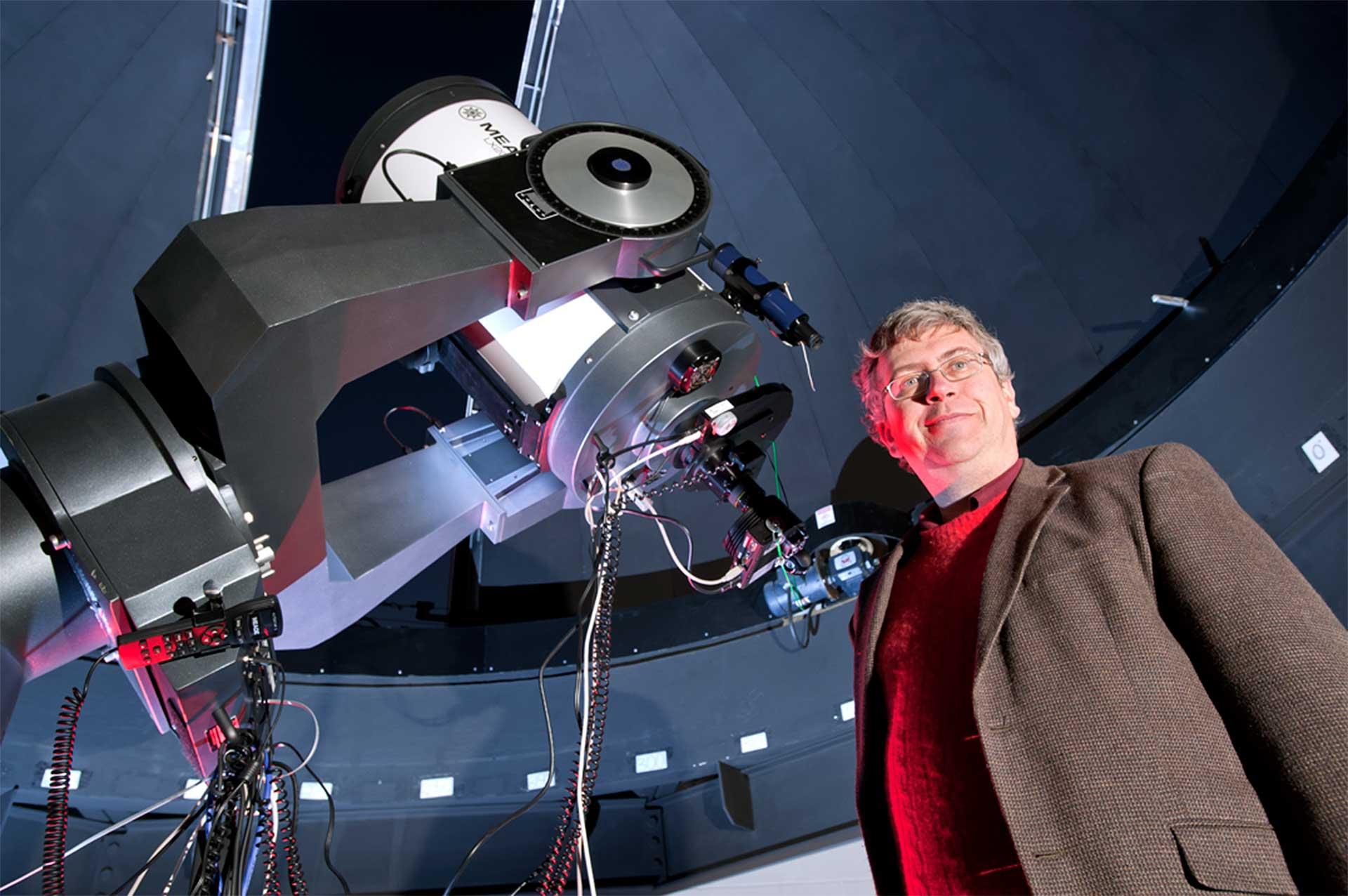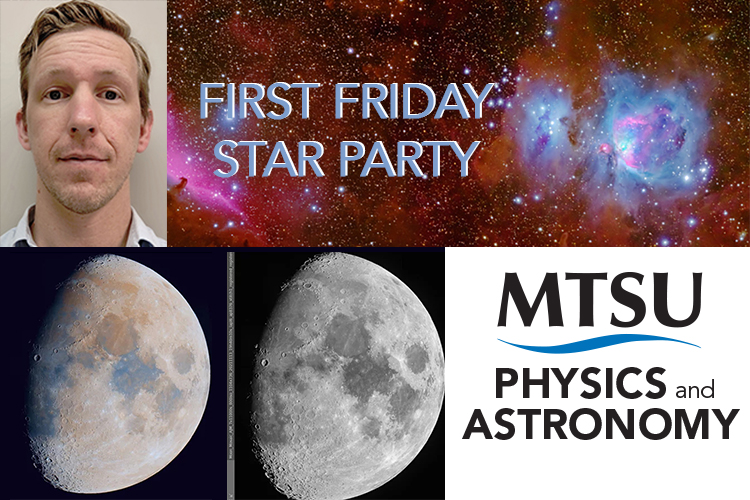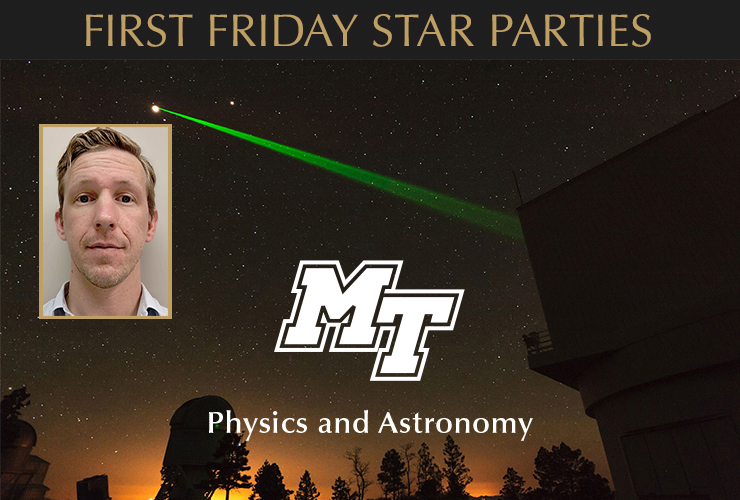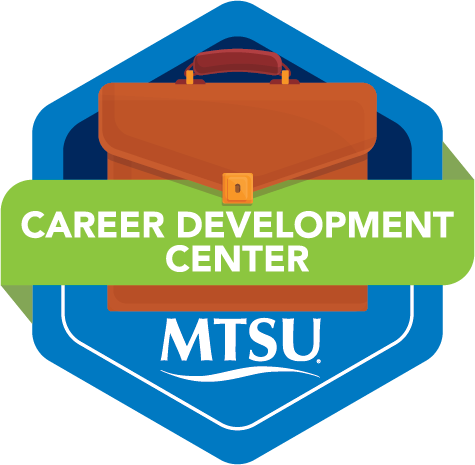
Physics
Let the universe become your laboratory by studying the cosmos beyond our planet.
Physics, Astronomy Concentration, B.S.
The Astronomy Concentration of the Bachelor of Science in Physics is offered through the College of Basic and Applied Sciences at MTSU. This concentration is designed for students interested in a degree specializing in astronomy, but who do not plan to attend graduate school in astronomy or astrophysics.
Humans have been looking to the stars and trying to understand how it all works since ancient times. Today, the curiosity may be the same, but the tools available have opened a universe of exciting things to unearth. From discovering new planets and stars to understanding black holes—astronomers are proving the science fiction of yesterday to be the reality of today!
Physics majors may pick from one of four different concentrations. The physics core consists of 25 semester hours of physics and astronomy and gets all Physics and Astronomy majors on a level playing field and sets you up to pursue any concentration.
- Professional Physics
- Astronomy
- Applied Physics
- Physics Teaching
News Briefs

MTSU astronomer focuses on ‘Astrophotography’ for Dec. 6 Star Party
Middle Tennessee State University Department of Physics and Astronomy lecturer Gregg McPherson will discuss “Astrophotography” during the next Star Party starting at 6:30 p.m. Friday, Dec. 6, in Wiser-Patten Science Hall Room 102.[ Read More ]

Earth-to-moon green lasers in sky led MTSU Star Party lecturer from high school to astronomy career
Middle Tennessee State University Physics and Astronomy lecturer Gregg McPherson will be featured in the next Star Party presentation that’s free and open to the public.[ Read More ]
News Briefs

MTSU astronomer focuses on ‘Astrophotography’ for Dec. 6 Star Party
Middle Tennessee State University Department of Physics and Astronomy lecturer Gregg McPherson will discuss “Astrophotography” during the next Star Party starting at 6:30 p.m. Friday, Dec. 6, in Wiser-Patten Science Hall Room 102.[ Read More ]

Earth-to-moon green lasers in sky led MTSU Star Party lecturer from high school to astronomy career
Middle Tennessee State University Physics and Astronomy lecturer Gregg McPherson will be featured in the next Star Party presentation that’s free and open to the public.[ Read More ]
Related Media

Physics, Astronomy Concentration, B.S.
There's almost no field of endeavor that doesn't have some part of it touched by physics. Not surprisingly, a B.S. in Physics can be that first step to any number of diverse careers! Examples include
- Acoustics researcher
- Architect
- Astronomer
- Astrophysicist
- Design engineer
- Doctor
- High school physics teacher
- Laser engineer
- Medical physicist
- Naval mine warfare analyst
- Patent attorney
- Process engineer
- Pilot
- Semiconductor engineer
- Software developer
- Spacecraft designer
- Radio Frequency (RF) specialist
- Video game developer
Employers of MTSU alumni include
- AFL Global
- Arlington High School
- Cheezburger Network
- Corvel Corporation
- Energetics Technology
- Fort Sanders Regional Medical Center
- Gearbox Software
- JET Programme, Japan
- Robert Half Technology
- RF Signatures
- Memorial Hospital, Chattanooga
- Middle Tennessee Medical Center
- MiraCosta College
- Tennessee Valley Authority
- Texas Tech University
- University of Maryland

MTSU’s Career Development Center
MTSU offers a comprehensive Career Development Center that serves students throughout the full student experience and beyond. They collaborate with faculty and staff to equip students with the tools to be marketable to the world of work and continuing education.
Students can schedule an appointment or check online resources and job boards at mtsu.edu/career.
Students can find current internship opportunities by talking to faculty and visiting the University job and internship board called Handshake.
Wondering what you can do with your major? Check out our What Can I Do with A Major In guides.



Degrees
Students in the Physics program can pursue a Bachelor of Science (B.S.) in Physics with concentrations in Applied Physics, Astronomy, Physics Teaching, or Professional Physics. Within the Professional Physics concentration are tracks in medical physics and astrophysics.
For complete curriculum details, click on the REQUIREMENTS tab above.
Undergraduate students can pursue a minor in Physics or Astronomy.
A minor in Physics is available for graduate students, as well.
Professional Licensure Disclosure
The Middle Tennessee State University (MTSU) College of Education’s teacher licensure preparation programs are accredited by the National Council for the Accreditation of Teacher Education (NCATE) and are eligible for accreditation by the Council for the Accreditation of Educator Preparation (CAEP). The Bachelor of Science (B.S.) in Physics with teacher licensure program at MTSU is designed to meet the licensure requirements set by the Tennessee Department of Education. Students should be aware that licensure requirements vary from state to state and are subject to change. MTSU has not made a determination whether a specific program will meet all of the requirements of another US state or territory. MTSU recommends that students who plan to seek licensure outside the state of Tennessee contact the appropriate licensing agency and discuss their plans with their advisor. To obtain current information about each state’s and territory’s licensure requirements and any additional regulations, students should consult the US Department of Education’s website for state contacts at https://www.ed.gov/contact-us/state-contacts
Related links

CONTACT US














